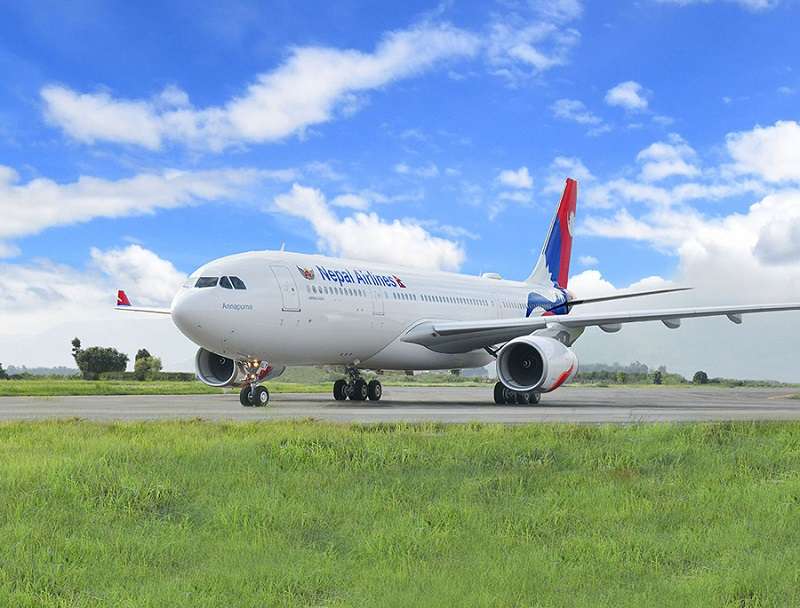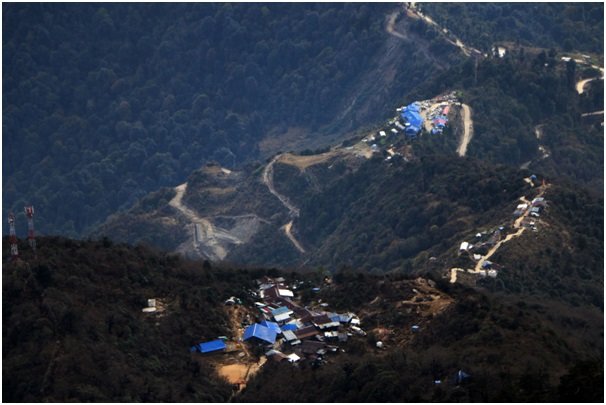Expensive Airfare Hampering the Diverse Tourism Potential of Nepal

Nepal, a nation blessed with breathtaking natural beauty, diverse cultures, and historical significance, is at a crossroads in its tourism journey. While the allure of this Himalayan paradise is undeniable, an ominous roadblock threatens to undermine its tourism potential - exorbitant airfare costs. These costs push international travelers away, casting a shadow over the nation's tourism industry. In this article, we have delved into the various facets of this issue and explored the urgent need for solutions.
A Nation of Natural and Cultural Splendor:
Nepal's charm lies in its breathtaking landscapes, including the world-famous Mount Everest and its rich cultural heritage spanning centuries. The country's diverse culture, delectable cuisine, and welcoming people create an unforgettable experience for travelers.
Expensive Airfare Driving Travelers Away:
Despite its allure, Nepal struggles to retain international travelers due to the soaring costs of airfare. Consider this alarming fact: a flight to Nepal can be up to 70% more expensive than one to neighboring India. This steep price difference is a significant deterrent for tourists.
Challenges in Connectivity and Airline Cartels: Nepal's limited connectivity options and potential cartels among airlines and travel agents contribute to inflated airfares. Travelers often find themselves with limited choices and at the mercy of pricing strategies that do not favor them.
Fuel Price Disparity: Nepal faces a daunting challenge with fuel prices that are more than 70% higher than those in neighboring countries. This substantial difference results in inflated airfare costs, making traveling to and from Nepal costly for domestic and international tourists.
The Burden of Ground Handling Charges: Tribhuvan International Airport (TIA) imposes ground handling charges that are three times more expensive than those at other international airports that prioritize their tourism industry. Regrettably, these charges come hand in hand with subpar service quality, creating a suboptimal travel experience. The monopoly held by Nepal Airlines in ground handling has not fostered an environment conducive to improving service standards.
Limited Airline Options and Unethical Practices: Nepal's limited connectivity options are compounded by unethical practices within the airline industry. These practices include the unethical holding of seats and the potential existence of cartels among airlines and travel agents. Such practices artificially inflate ticket prices, reducing choices and raising travel costs.
Visionless Tourism Leadership:
A critical issue plaguing Nepal's tourism industry is the apparent lack of visionary leadership within the Ministry of Tourism. The current Tourism Minister's approach appears to be more about grand speeches and stunts rather than implementing the aggressive and intellectual reforms needed to invigorate the sector. There is a growing concern that the Minister does not possess the understanding or capacity required to lead a ministry that plays a pivotal role in the nation's economy.
Finance Minister's Unilateral Decision:
The Finance Minister's unilateral decision to impose a 13% VAT on air tickets adds to the already steep airfare costs. This decision, made without discussions with stakeholders in the trade, has raised concerns about a lack of consultation and understanding of the consequences. It has been criticized as shortsighted and detrimental to tourism, as it further raises the financial burden on travelers and contributes to the unaffordability of air travel to and from Nepal. This decision underscores the need for informed, collaborative policymaking considering the broader impact on the tourism industry, a vital part of Nepal's economy.
Neglecting Pilgrimage Tourism:
Lumbini, the birthplace of Buddha, holds immense potential for pilgrimage tourism, akin to the significance of Mecca and Madina for Muslims. Nevertheless, it remains underpromoted, missing out on attracting millions of Buddhist pilgrims seeking spiritual enlightenment.
Lumbini's historical and spiritual significance cannot be overstated. It is the birthplace of Siddhartha Gautama, who later became Buddha, the founder of Buddhism. For millions of Buddhists worldwide, Lumbini is not just a destination; it is a sacred pilgrimage site where they can pay their respects, seek enlightenment, and connect with their faith on a profound level.
However, despite its importance, Lumbini has not received the attention it deserves in Nepal's tourism marketing efforts. While Mecca and Madina draw millions of Muslim pilgrims annually, Lumbini remains largely undiscovered by Buddhist pilgrims. This untapped potential represents a missed opportunity for Nepal's
tourism industry.
Nepal should prioritize the promotion of Lumbini as a pilgrimage destination, not only for its historical significance but also for its potential to attract a diverse global audience of spiritual seekers. By investing in infrastructure, amenities, and marketing campaigns highlighting Lumbini's importance, Nepal can be a must-visit destination for Buddhists worldwide. This diversifies the tourism offerings and fosters cultural exchange and spiritual enrichment, further enhancing Nepal's standing as a unique and compelling travel destination.
The Role of the Nepal Tourism Board and the Need for Modernization:
The Nepal Tourism Board (NTB) plays a pivotal role in promoting Nepal as a desirable tourist destination. However, concerns have been raised about the effectiveness of its marketing strategies, which need to catch up in a rapidly evolving global tourism landscape.
Traditionally, NTB has organized sales missions as part of its promotional efforts. While these missions can be beneficial, they need to evolve to meet the demands of the 21st century. Here is a closer look at the role of NTB and why there is a need for modernization:
- Outdated Marketing Strategies: Some critics argue that NTB's marketing strategies are stuck in the 90s. In an era dominated by digital marketing, social media, and data-driven insights, traditional methods alone may not suffice. NTB should embrace innovative approaches that leverage technology and social platforms to reach a wider audience.
- Inclusivity in Marketing: There is a perception that NTB's sales missions often cater to the interests of politicians, bureaucrats, and its staff rather than focusing on reaching a diverse global audience. A more inclusive approach involving industry experts, travel influencers, and international partners can help diversify its promotional efforts.
- Data-Driven Insights: NTB should harness data analytics to gain a better understanding of traveler preferences and trends. This information can inform targeted marketing campaigns, helping Nepal stay competitive in the global tourism market.
- Strategic Partnerships: Collaborating with international travel organizations, airlines, and influential figures in the travel industry can expand Nepal's reach. Strategic partnerships can result in joint marketing efforts that effectively promote the country.
- Branding and Storytelling: Nepal has a unique and compelling story to tell, from its stunning landscapes to its rich cultural heritage. NTB should craft a captivating brand narrative that resonates with potential travelers and sets Nepal apart from other destinations.
A Call for Strong Airlines and Reforming Nepal Airlines:
The importance of a robust and reliable airline in Nepal cannot be overstated. It is not just about improving the country's connectivity; it is about the sustainability of the tourism industry. Nepal Airlines has been a part of the national identity for decades, but it faces significant challenges, including the burden of political unions that can hamper efficiency.
The government should not sacrifice the entire tourism industry to save Nepal Airlines. It might be time to consider approving other reputable airlines to establish hubs in Nepal and operate from the country. Privatizing Nepal Airlines, as many other nations have done, could also be a viable option. After all, if Air India can be privatized, there is no reason why Nepal Airlines should not undergo a similar transformation.
Airport services and ground handling will not see improvement as long as Nepal Airlines maintains a monopoly. Meaningful reforms within the airline are essential, including addressing the issues tied to political influence and unions. It calls for boldness, honesty, knowledge, and capacity in leadership. If the current Chairman and Tourism Minister are not up to the task, it is time for new leadership to guide Nepal Airlines toward a brighter future. The prosperity of the airline is closely linked to the prosperity of Nepal's tourism industry, and it is time for the necessary changes to take flight.
Conclusion:
In conclusion, Nepal stands at a crossroads in its tourism journey. Addressing the issue of expensive airfare, promoting pilgrimage tourism in Lumbini, revitalizing NTB's marketing efforts, and embracing essential reforms within Nepal Airlines are vital steps to secure a sustainable and prosperous future for Nepal's tourism sector. It is time to unlock the full potential of this incredible nation by addressing these pressing issues and embracing the necessary reforms. Nepal's tourism industry's prosperity is crucial for its economy and for showcasing the country's rich cultural and natural heritage to the world. The time for change is now, and it requires the collective effort of government authorities, airlines, regulatory bodies, and the public to create a more traveler-friendly environment. Nepal's tourism industry hangs in the balance, and the time for action is now.
(Parajuli is a tourism entrepreneur and the CEO and Founder of Rupse Holidays Pvt Ltd.)






Leave Comment